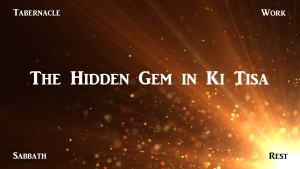 Ever see something in the Bible that just appears out of nowhere and seems to make no sense whatsoever in context?
Ever see something in the Bible that just appears out of nowhere and seems to make no sense whatsoever in context?
It’s a common occurrence – like the prohibition against boiling a kid in it’s mother’s milk right after the Passover instructions, which seems absolutely unrelated until we read in the Ras Shamra texts about the spring Canaanite fertility ritual involving, you guessed it, the boiling of a baby goat in the milk of it’s mother. Well, we have one of these instances in Exodus 31 after the setting apart of Betsal’el and Oholiab as the creative overseers of the creation of the wilderness Tabernacle. All of a sudden, without transition, BAM, we have the Sabbath reinforced. What’s more, we are going to see the exact same thing happen at the beginning of the next portion, albeit in reverse as the Sabbath prohibitions are made before Moses relays God’s instructions to the Israelites.
What the heck?
God has just laid out all of the work to be done and the men He wants to place over it, and then He mentions the Sabbath prohibitions – but why here of all places?
Very simple really – you see, the construction of the Tabernacle was incredibly important and allowed God to travel and dwell “in the midst” of the children of Israel while still being set apart, having his ultimate level of kedushah (holiness) respected through separation and restrictions on the part of those who approach Him. The Tabernacle, and later the Temple, were incredibly important – so important that God Himself laid out the regulations for the construction of both the former and the latter (I Chron 28:19 specifically states that the plans for the Temple were given by God to David, in writing through His Spirit). But there was something greater than the Tabernacle and Temple – and that something is the Sabbath.
That something is relationship. Despite how incredibly important the dwelling place of God in the midst of His people is – the Sabbath, that time outside of time where we stop achieving and meet with Him, is even more important. After all, what good does it do us to build a place for Him to dwell in our midst if we are not going to set apart time for Him that is inherently different from all other times? More pointedly, why build a palace for a King if we are not prepared to celebrate His rest, the Ancient Near Eastern way of expressing the entronement of a god or king? Continuing to build, although it would seem good in our western achievement-oriented view of the virtuous life, would be to refuse to acknowledge the Kingship of the King of kings who was indeed enthroned over His creation on the seventh day, the first entity declared holy – and in fact the only thing declared holy in all of Genesis.
The placement of the Sabbath commandments after the instructions for Betsal’el and Oholiab was deliberate – it served the purpose of telling the people of Israel that not even the building of a dwelling place for God was greater than ceasing from our labors in order to set apart time for Him. There would be more than enough time to build, is part of what He was declaring, more than enough time to achieve – it was and is an act of faith to set aside our labors one day in seven, not simply to rest up so as to work even harder on the other six as Philo claimed, when countering the Greco-Roman distaste of supposed Jewish “laziness.”
The message is all the more poignant for us in modern times – if even the building of the Tabernacle, and later the Temple, was to be suspended for the Sabbath – how do we place our own endeavors higher?
Sadly, here in exile, we often have little choice and employers, like Pharaoh in Egypt, can force us to work on the Sabbath day- especially young people newly entering the workforce, it’s all part of the curses that we all live under until the return of Messiah. That being said, most folks do have a choice and when we do, it is incumbent upon us to cease from the achievements that can be put off for another day. The gem of Torah Portion Ki Tisa is a release even from what we consider to be holy works, achievements that we would justify in His Name. We do not have to constantly do, there is provided for our benefit a day where we can simply exist.

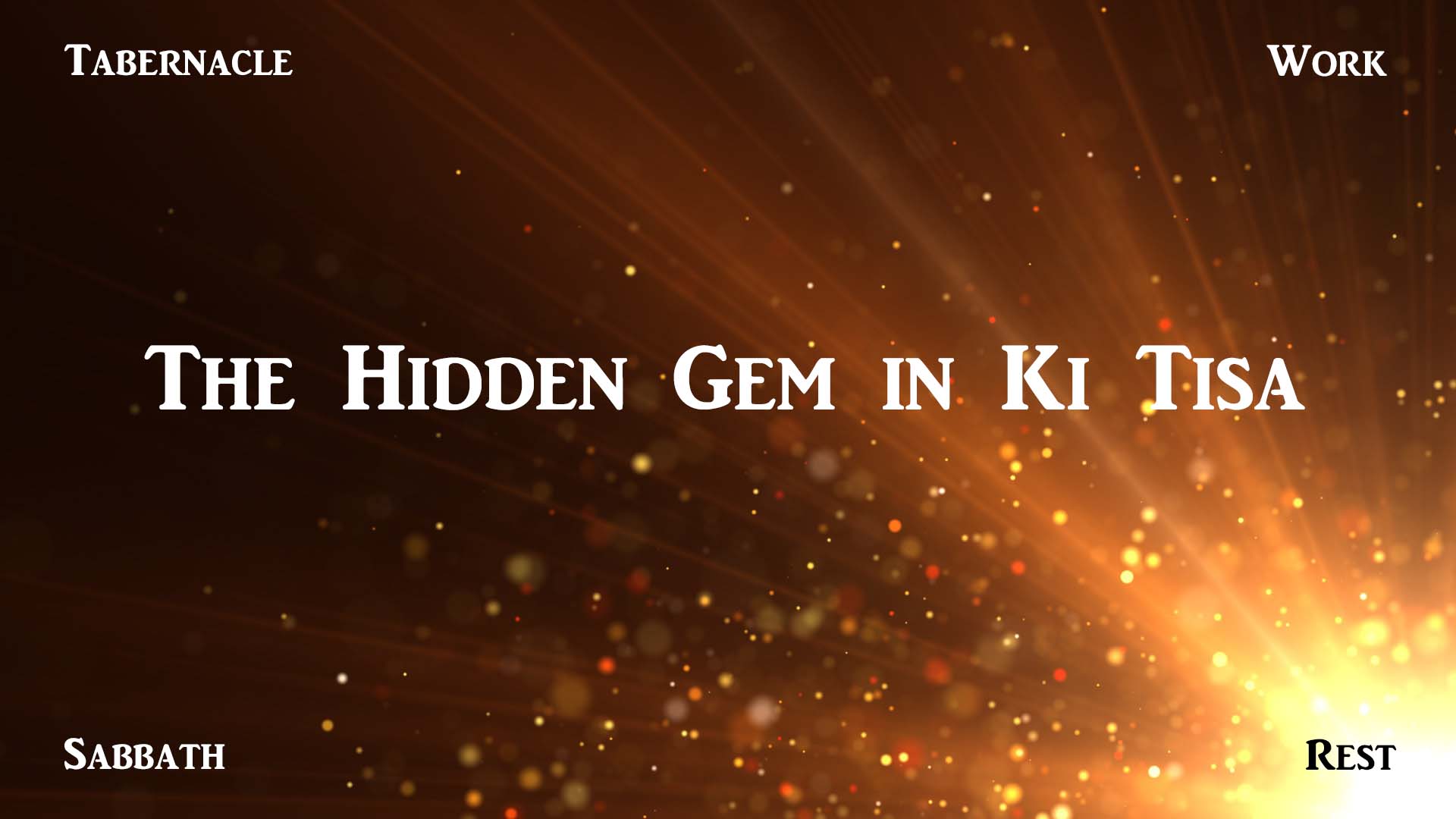


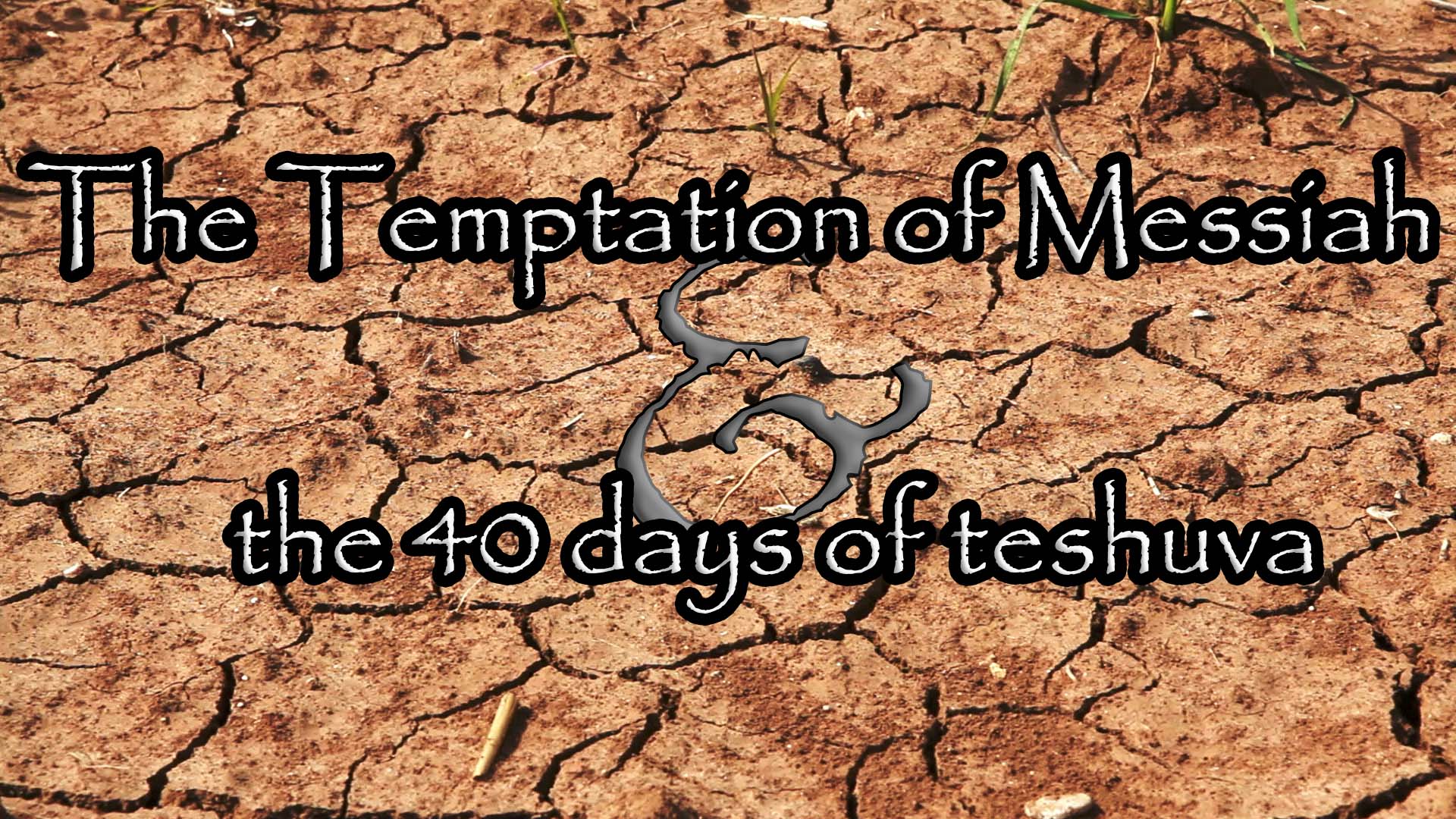

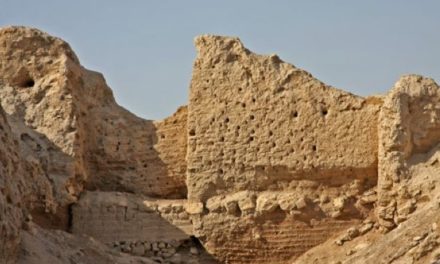
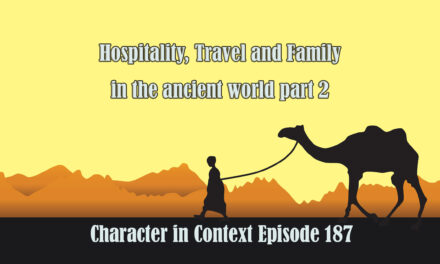














Terrific reminder of ceasing from working on the Sabbath.
Great quote . . . “not even the building of a dwelling place for God was greater than ceasing from our labors in order to set apart time for Him.”
Wow. Such a powerful and much needed insight! This concept is also reflected in our daily lives – God has blessed us with so much; within that blessing, I must remember to just spend time with Him, not just set about working in it. (:
Thank you, faithful sister in Yeshua. I needed that.